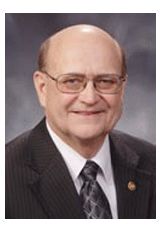The Mayflower set sail on Aug. 1, 1620, with 102 passengers aboard. Of those, 40 pilgrims that had initially fled to Holland to escape religious persecution had signed on to this trip, as well. Their goal was to begin new lives away from the iron rule of King James I.
Before the Mayflower finally dropped anchor in Plymouth Harbor on December 26, the pilgrims realized they were beyond the scope of their intended destination, and realized they may be in hostile territory with regard to the natives, so they decided to draw up a contract of law among themselves.
The leader of the group, William Bradford, drew up an agreement, called the Mayflower Compact, which set forth a set of basic rules of governance for their group. Mr. John Carver had been chosen as governor of this assembly while on board, and continued in that position once the pilgrims had settled.
Life was hard for the new settlers, having no homes built or crops to eat. The first winter in the new world was harsh, indeed. Starvation, exposure and illness claimed the lives of nearly half of the group, including William Bradford’s wife. The local Indians helped the settlers by showing them how to plant crops, hunt and fish for food, which helped get the group back on its feet. This precipitated the first Thanksgiving in 1621. However, this is not the end of the story.
The original Plymouth colony had a collective economic system. Everything that was produced went to a centralized location for equal distribution amongst the settlers. All food, shelters, buildings, etc., belonged to the group as a whole. This was an early form of socialism. Soon the governing body realized that this method had many problems. Able-bodied single men felt they worked too hard to feed the separate families, and married men disliked their wives cooking, sewing and cleaning for all the others. The system lowered the incentive to work harder to maintain the common property. Confusion over rights to food and other items fueled discontent among the group as well.
After the death of John Carver, Bradford assumed the position of governor, and the decision was made to separate the pilgrims into their own families. They were given plots of land, and began farming, buying and trading on their own for necessities, as well as sharing and trading with the Indians. This can be construed as the birth of free enterprise in America, a method of principles that we live by today, and that’s a good reason to be thankful.
As always, I’m happy to hear questions and comments from constituents regarding this or other issues in the Missouri Legislature, and I can be reached by calling my Capitol office at 573-751-5713 or by e-mailing me at dan.brown@senate.mo.gov.
Thank you for reading this and for your participation in state government.
|



